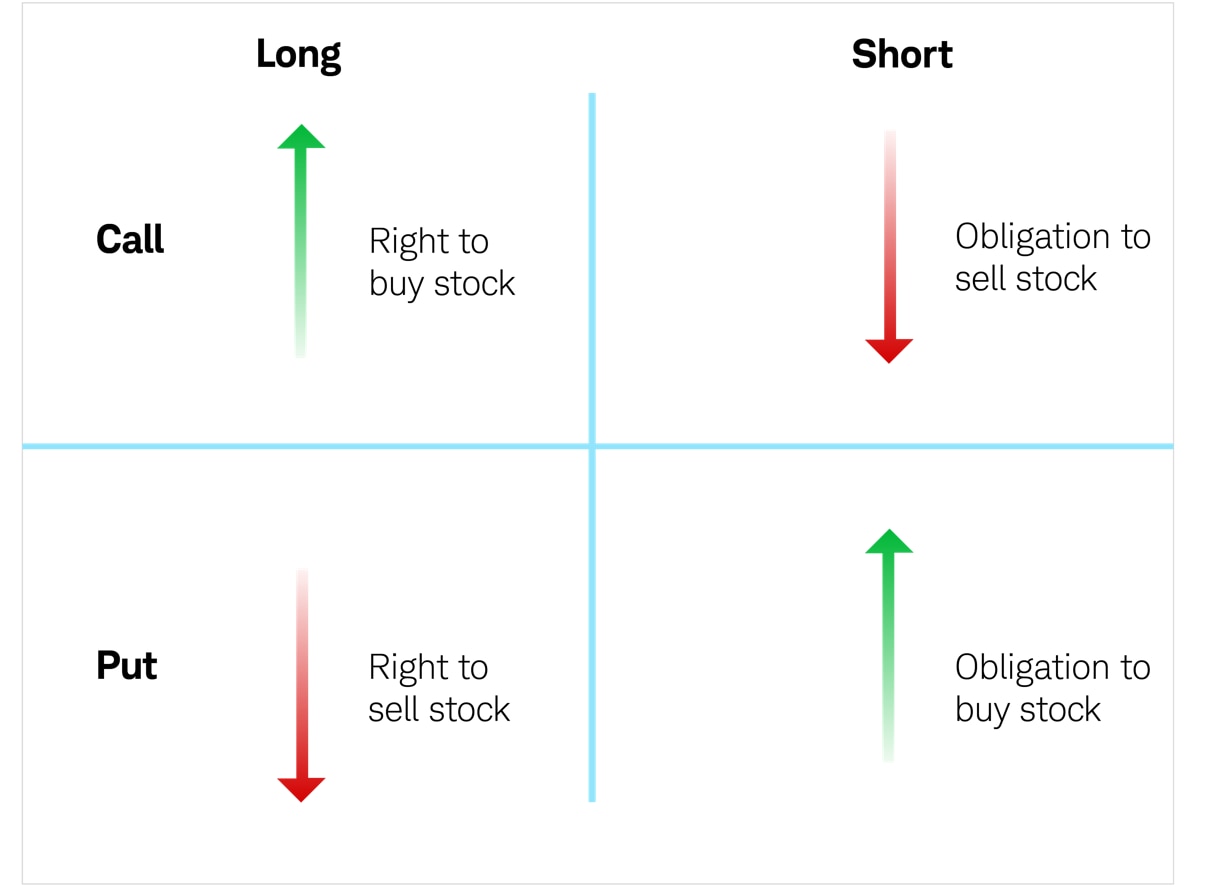“When the stock market crashes, everyone panics. When it recovers, they act like they knew it all along.” – Peter Lynch

Image: www.schwab.com
In a world of financial volatility, savvy investors seek strategies that mitigate risk while leveraging potential gains. One such strategy is options trading. Options trading is a multifaceted endeavor that offers nuanced approaches to the market. In this comprehensive guide, we delve into the world of options trading from a long-term perspective, unveiling its advantages, strategies, and expert tips to empower you in your financial endeavors.
Options Trading: A Long-Term Perspective
Options trading involves contracts that grant buyers (holders) the right, but not the obligation, to trade an underlying asset (usually a stock) at a specified price (strike price) on or before a predetermined date (expiration date). These contracts play a crucial role in portfolio management, allowing investors to hedge against risk, enhance returns, and speculate on market fluctuations, all within a carefully calibrated time frame.
Long-term options trading involves employing strategies that hold options contracts for a period exceeding one year, typically extending to multiple years. These strategies are often employed to capitalize on sustained market trends, generate income, and enhance portfolio protection against downside risk.
Advantages of Long-Term Options Trading
- Increased Leverage: Long-term options offer significant leverage to magnify returns on relatively modest investments.
- Flexibility: Investors hold options for extended periods, allowing them to adapt to market dynamics while minimizing the need for frequent trading.
- Risk Management: Options can be used as hedging tools, mitigating potential losses in volatile markets.
- Regular Income: Selling covered calls or writing call spreads provides a consistent income stream through premiums.
- Long-Term Capital Appreciation: Long-term options trading enables investors to capitalize on sustained market uptrends.
Strategies for Long-Term Options Trading
Navigating the long-term options market requires strategic finesse. Let’s explore some effective strategies:
Image: medium.com
Covered Calls
Covered calls involve selling a call option against a stock held in the investor’s portfolio. This strategy generates income from the premium while also limiting upside potential on the underlying stock.
Cash-Secured Puts
Similar to covered calls, cash-secured puts involve selling a put option while holding cash reserves sufficient to purchase the underlying stock if exercised. This strategy generates premium income and provides a buffer against potential market downturns.
Bull Put Spreads
Bull put spreads combine the purchase of a lower strike price put option with the sale of a higher strike price put option. This strategy seeks to profit from stock price stability or modest gains.
Bear Call Spreads
Bear call spreads involve selling a call option with a higher strike price while simultaneously purchasing a call option with a lower strike price. This strategy anticipates a decline or sideways movement in the underlying asset’s price.
Tips and Expert Advice
To excel in long-term options trading, heed the wisdom of experienced professionals:
- Understand the underlying asset thoroughly.
- Set realistic profit targets and execute consistent risk management strategies.
- Opt for monthly options with ample time to expiration to capitalize on price movements.
- Avoid overleveraging and consult a financial advisor if necessary.
- Stay abreast of market trends and diligently monitor positions.
FAQs on Long-Term Options Trading
Q: What is the most suitable long-term options trading strategy for beginners?
A: Covered calls and cash-secured puts offer a more conservative approach, suitable for新手。
Q: How do I minimize risk in long-term options trading?
A: Strict risk management, ample time to expiration, and prudent position sizing are key.
Q: Can I make consistent income through long-term options trading?
A: Yes, selling covered calls and writing call spreads can generate income from premiums.
Q: Is long-term options trading appropriate for all investors?
A: While profitable, long-term options trading requires experience, risk tolerance, and continuous learning.
Q: What are the tax implications of long-term options trading?
A: Long-term options gains are taxed at a lower rate compared to short-term gains.
Options Trading Long Term

Image: investhub.agency
Conclusion
Options trading, particularly from a long-term perspective, empowers investors to harness market opportunities, enhance returns, and mitigate risk. By embracing a judicious approach, investors can navigate the market’s intricate landscape with greater confidence. Whether you are a seasoned trader or contemplating a venture into options, the insights and strategies outlined in this guide provide a valuable foundation for long-term success. Embark on the journey to explore this compelling financial instrument and unlock the potential of long-term options trading.
If you resonate with the concepts discussed in this article, consider exploring additional resources to delve deeper into this fascinating investment strategy. Empower yourself with knowledge and expertise to make informed decisions that align with your financial goals and aspirations. Remember, market success often hinges upon continuous learning and savvy investment execution.






